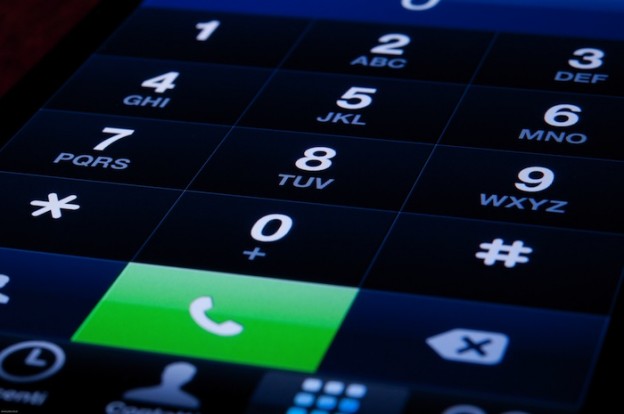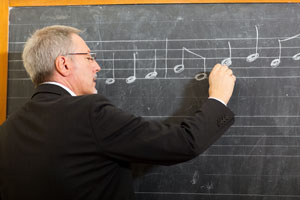Justin Bieber and Usher may be forced to go to trial in a copyright infringement lawsuit without an expert witness. The presiding judge denied their motion to extend the deadline for providing an expert witness report. Without the benefit of an expert musicologist, Bieber and Usher will have a more difficult challenge as they attempt to persuade the jury that the hit song “Somebody to Love” was not copied, at least in part, from a song with the same title that was written by Devin Copeland and Mareio Overton.
Copyright Infringement Lawsuit
Copeland, an R&B artist, released his version of “Somebody to Love” in 2008 under the name De Rico. Copeland and Overton registered a copyright to the song. A company that recruits artists for major labels gave a promotional copy of the song to its clients, including Usher.
Copeland alleges that Usher’s mother, who is also his manager, told him that they were interested in having Copeland join Usher on tour after Copeland recorded an anticipated album. The album included the song “Somebody to Love.” Copeland says Usher’s mother never followed up on that suggestion.
Months later, Usher recorded a demo of a song titled “Somebody to Love.” He posted the demo to YouTube but did not release it commercially. Bieber, who regards Usher as a mentor, worked with Usher to record his own version of Usher’s demo.
Bieber’s version of “Somebody to Love” was included on his first album. The song was a success, peaking at number 15 on the Billboard Hot 100 chart. A month or two later, Usher and Bieber released a remix of the song. Both Usher and Bieber performed on the remix, with was otherwise virtually the same as Bieber’s solo version.
Copeland claimed that the Usher/Bieber song copied original, copyrighted content from his song. He sued in federal court for copyright infringement. The district court judge dismissed the lawsuit without a trial after deciding that no reasonable jury could find that the two songs were substantially similar. Copeland appealed.
Copeland’s Appeal
The Court of Appeals noted that copyright infringement requires proof that the defendant copied original, copyrightable elements of the plaintiff’s work (in this case, a song). Copying can be inferred from evidence that the defendant had access to the song and that the defendant’s song is substantially similar to the copyrighted song.
The Court of Appeals scrutinized the two songs for “substantial similarity” by making an extrinsic and an intrinsic inquiry. The extrinsic inquiry is objective. The question is whether the original elements of the first song closely match similar elements in the second song. The court noted that plaintiffs typically rely on expert evidence to establish that the first song has original elements and that the same elements appear in the second song. If they do, an inference can be drawn that the creator of the second song copied those elements from the first song, provided that the creator of the second song had access to the first song.
The intrinsic inquiry is subjective. It asks whether the song’s intended audience would experience the two songs as similar in their overall effect. The intrinsic test relies on an aesthetic judgment regarding the “concept and feel” of the two songs.
A plaintiff suing for copyright infringement must establish both extrinsic similarity and intrinsic similarity. The district court dismissed the lawsuit without considering extrinsic similarity because it decided that no reasonable jury could find that the songs were intrinsically similar. The court of appeals disagreed.
The district court decided that Copeland’s song and Bieber’s song were different in tone and mood. The court of appeals acknowledged that the songs are written to accommodate different genres. Copeland’s song is performed in an R&B style while Bieber’s fits within the genre of dance pop. Yet differences in genre alone do not make songs intrinsically dissimilar. If that were true, the court explained, a reggae version of a Beatles song would not violate the Beatles’ copyright.
The court of appeals also acknowledged that the two songs are dissimilar in more ways than they are similar. Lyrics, melodies, and beats are all different, at least in some respects, when the songs are compared side-by-side.
Yet the question at this stage of the case is not whether a court believes the two songs are intrinsically similar, but whether a jury could find that they are intrinsically similar. The court of appeals thought that the chorus or “hook” in each song, from the shared lyric “I need someone to love” to the strikingly similar rhythm and melody, could cause a general audience to believe that the two songs were similar in their overall effect. In fact, the court suggested that the audience would want to sing along with the chorus in each song for the same reasons. Since the chorus was substantially important to the overall effect of the two songs, and since a jury could find that the choruses are intrinsically similar, the court of appeals decided that Copeland was entitled to have a jury decide whether Bieber and Usher copied Copeland’s song.
Preclusion of Bieber’s Expert Witness
As the court of appeals noted, the extrinsic similarity of two songs in a copyright infringement trial is usually the subject of expert testimony. Musicologists on both sides typically express opinions about which components of a song are original and whether original components in the first song are repeated in the second song.
Expert witnesses in federal cases must prepare reports. Those reports must be disclosed before a deadline established in a scheduling order. Copeland and Bieber jointly asked the district court judge to amend the court’s scheduling order. Joint motions are routinely granted and, if the judge had consented, Bieber would have had until April 15 to file his expert report.
Defying the expectations of Bieber’s attorneys, the judge denied the motion. She is reportedly frustrated by repeated delays in the case and wants to assure that it goes to trial in October. The judge denied the motion on March 30, after Bieber’s lawyers had already missed the March 21 deadline to file their expert report.
Scrambling to avoid going to trial without an expert witness, Bieber’s lawyers are asking the judge to reconsider. They explained that their expert musicologist is busy with other cases, including a lawsuit alleging that Jimmy Paige copied parts of “Stairway to Heaven” from a song by the band “Spirit.” They also advised the court that they would have hired an expert who is less busy if they had known the court would deny the joint motion to amend the scheduling order.
The court might agree to allow the expert report to be filed late. On the other hand, it might rule that courts, not parties, set deadlines and that parties have an obligation to comply with those deadlines. If Bieber and Usher are forced to go to trial without an expert, they may have little hope of contesting the claim that the songs are extrinsically similar, forcing them to hinge their defense on the argument that the songs are substantially different in concept and “feel.”





